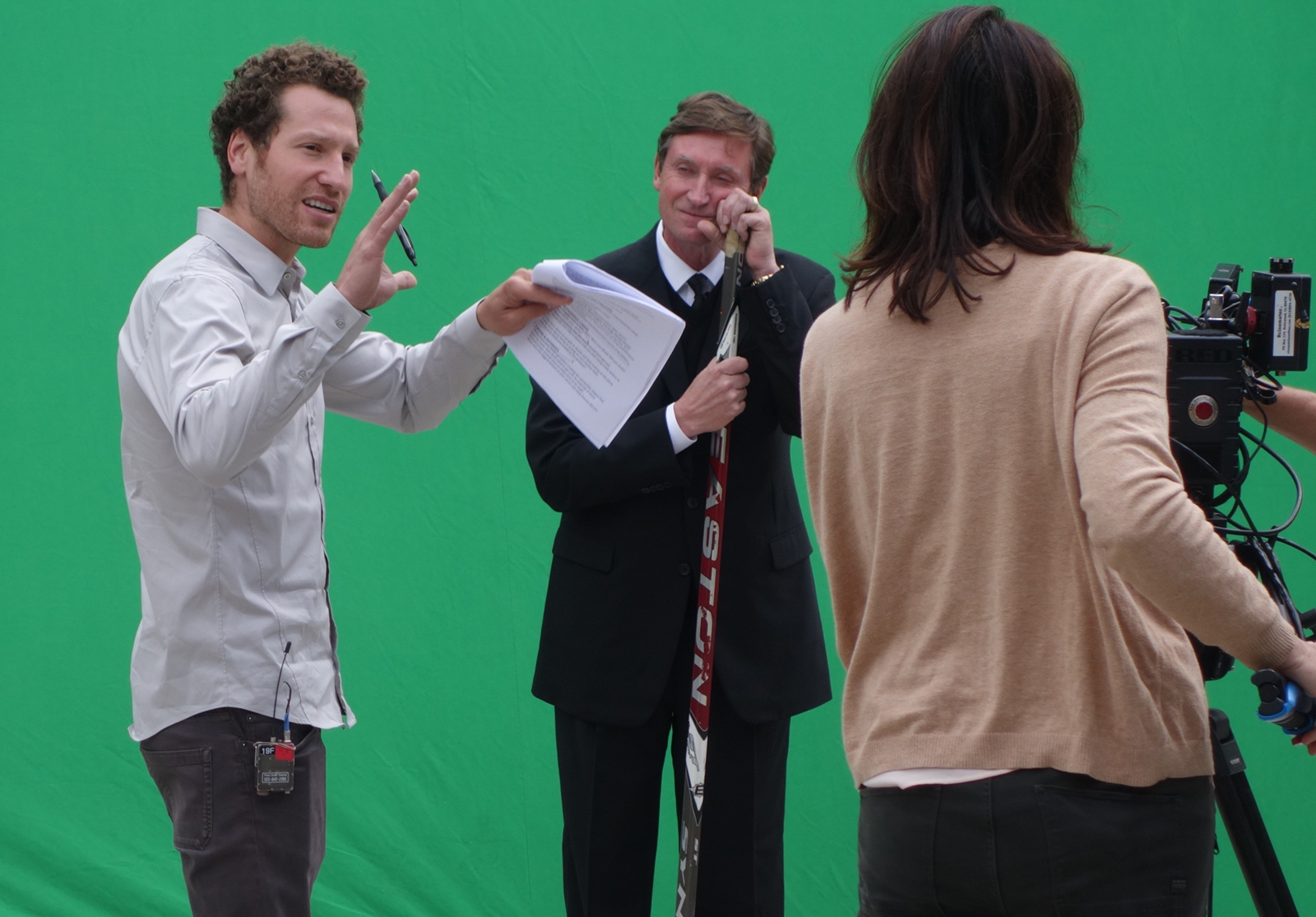
Four years after “Red Army,” the documentary on the Soviet Union team that dominated Cold War-era hockey, director and producer Gabe Polsky returned to the world of sports documentaries with “In Search of Greatness,” which debuts in theaters Friday.
The film interviews the likes of Jerry Rice, Pelé and Wayne Gretzky to answer one question: what makes them the greatest of all time? Polsky argued that creativity is the core trait among standout athletes.
“Even as a kid, I was attracted to the creative aspect of sport,” Polsky told The Daily Free Press. “When you got [to] the stadium and you see something and you turn to the guy next to you, just, like, ‘Wow, did you see that?’ Like something magical, something you’ve never seen before.”
These awe-inspiring moments are even more important than a win or a loss, although there is a correlation, according to Polsky.
“That’s what I was attracted to, but for some reason, no one ever talked about that,” Polsky said. “… No one ever encouraged creativity, no one talked about it. It was sort of taboo, and if you are creative, oftentimes you find yourself on the bench.”
He described creativity as the essence of greatness and said he found the athletic field’s denial of individuality distressing.
“We spend billions of dollars on sports media, but how can no one even talk about the essence of it?” Polsky said. “That always stuck with me when I had the tools to make a film about it, that was my opportunity to speak about this very important issue, because this isn’t really about sports as much as it is about mental health and happiness and what makes somebody great.”
Polsky said that allowing for originality is both essential for athlete development and players’ wellbeing.
“I was able to use the greatest athletes of all time to tell a story about life, about nature and nurture, about parenting, coaching, so many different things that I think could guide us to be a happier and healthier society,” Polsky said.
For three years, Polsky played DI hockey at Yale University under Tim Taylor, who led the Bulldogs for 28 years and was a two-time U.S. Olympic coach.
The two clashed over Taylor’s defensive-minded strategies. However, Polsky said his time on the Yale team was ultimately a negative experience.
“I had a horrible experience at Yale hockey,” Polsky said. “When I played, I was productive, but he didn’t like how I played, and so therefore I didn’t get a lot of playing time. I basically lost the joy of the game, and it was heartbreaking — painful, painful experience — and it’s one of the reasons why I made this film.”
Polsky said coaching has a major impact on athletes’ lives.
“I made this movie so we have less bad coaches,” Polsky said. “There’s not enough good coaches — there are very few good coaches, and I hope that we can give our next generation a much better experience in sports.
After realizing that a professional hockey career was not in his future, Polsky said filmmaking allowed him to express himself, entertain people and communicate ideas he finds important.
“If you’re playing beautifully and creatively, that’s who you are,” Polsky said. “It’s basically like what you do with the puck or the ball is who you are, it’s the same with filmmaking. The choices you make are who you are.”
Expression also empowers athletes, the film argues.
While the film exemplified John McEnroe, a member of the International Tennis Hall of Fame, it also featured highlights from Serena Williams, who received backlash for her actions on the court during the US Open.
“Anytime you express yourself, you help evolve society. If you can’t say anything, nothing evolves,” Polsky said. “… I always think people should say how they feel, but obviously there are consequences, and it’s so difficult. There’s the age-old question of if you speak out for what you believe in, you risk a great amount, but if you don’t, you’re a coward.”
Polsky said his first sports documentary also influenced him in making “In Search of Greatness.”
In “Red Army,” the Soviet players were subject to a controlling staff and government — they were technically billed as soldiers — Polsky said the team thrived due to its creativity and that it inspired him to dig deeper into the topic.
“The ice was the only space where they could create,” Polsky said. “Their coach wasn’t saying, ‘No, don’t play that way.’ They were allowed to play, but they were kept in a locked-up base … I took this idea of creativity in sport a step further to really understand it, but it started there.”




















































































































